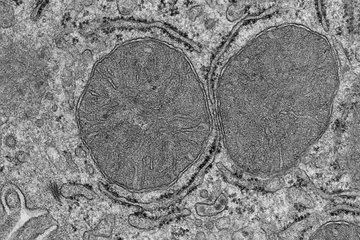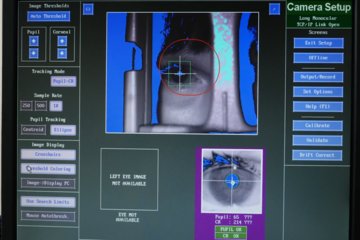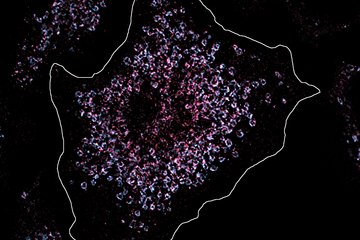Active substances for cancer medication
First molecule by the Lead Discovery Center is tested in clinical trials
When the Max Planck Society established the Lead Discovery Center (LDC) for the development of new medicinal compounds in 2008, only a few people believed it would be successful. Ten years later, researchers at the LDC are now working on around 20 projects involving searches for new substances that can be used for medicinal purposes. One of the compounds developed at the LDC is already being tested in clinical studies on humans, while another is soon to reach this phase. Along with academic organizations and public entities such as the Max Planck Society the Helmholtz Association and the state of North Rhine-Westphalia, a number of pharmaceutical and biotech companies such as Bayer, Boehringer Ingelheim, Gruenenthal and Merck are also involved with the development of medicinal compounds at the LDC in the capacity of licensees or cooperative partners.

The search for new cancer drugs accounts for the majority – currently around 40 percent – of the research projects at the LDC. One substance that has already overcome several obstacles on the way to becoming a drug is atuveciclib. This substance was discovered and developed by scientists at the LDC. Atuveciclib inhibits the activity of an enzyme known as CDK9, which regulates the formation of so-called messenger RNA and consequently the synthesis of proteins. CDK9 is overactive in some cells. This can cause them to become cancerous.
“The pharmaceutical industry did not pursue the blockage of CDK enzymes for a long time because there was supposedly too little chance of success. With the development of atuveciclib, we have shown that this principle can by all means be used in drugs provided the CDK9 inhibitor is specific enough,” explains Bert Klebel, co-director of LDC with Peter Nussbaumer. The development of this substance was supported by the Max Planck Foundation. The LDC has issued a license for atuveciclib to Bayer, which is currently testing it in a clinical phase 1b study.
With Axl against metastases

Another promising substance targets the characteristic that makes cancer so dangerous and potentially fatal, i.e. the development of metastases in other organs. Axel Ullrich at the Max Planck Institute of Biochemistry in Martinsried discovered that the substance known as AXL kinase is involved in the signalling pathways that help control the migratory behaviour of metastases. This enzyme is overactive in most forms of highly invasive breast cancer. Researchers at the LDC have identified a molecule that can block AXL kinase and is suitable for use in medicinal products. The Korean pharmaceutical company Qurient has acquired a license to develop the substance and is currently testing it in pre-clinical studies.
Moreover, the LDC has been working hard on a new potential medicinal substance in cooperation with Nobel Prize winner Robert Huber from the Max Planck Institute of Biochemistry, the University of Duisburg-Essen and the company Merck KGgA. This substance is also currently in the developmental phase.
However, the LDC does not limit its work to cancer drugs. A quarter of its projects relate to the central nervous system and neurological diseases, while ten percent relate to the investigation of new treatment options for infectious diseases. Moreover, scientists at the LDC are also working on substances that could potentially be used to treat autoimmune diseases, metabolic disorders, connective tissue diseases and osteoporosis.
HR













